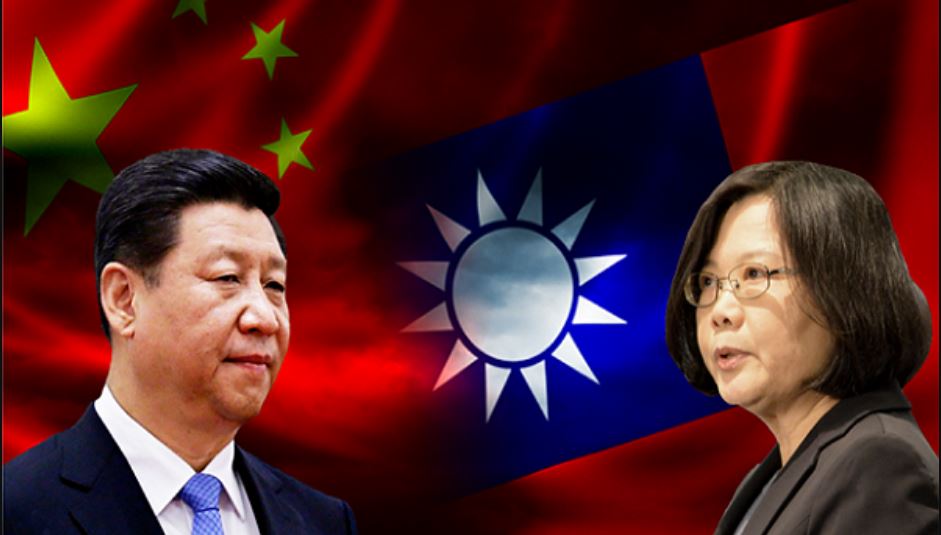Taiwan is sprinting at an unprecedented pace to dissociate itself from all indicators which might somehow connect the democratic and sovereign island nation with the tyrannical People’s Republic of China, under an oppressive CCP regime. Effectively, Taiwan off late has been taking long strides to dump the much touted “One-China Policy” of the Chinese Communist Party, which is regularly used as a pretext by Beijing to flex its muscles around its neighborhood. However, important developments have now been noted from Taipei, which are bound to irk Xi Jinping’s dictatorial and belligerent regime.
Last Wednesday, the Taiwanese legislature unanimously passed two important resolutions. First, the legislative green signal was given for finally renaming Taiwan’s flagship carrier – China Airlines and second, the name ‘Taiwan’ would now be made more prominently visible on the country’s passport. Renaming China Airlines has been a long-standing demand in Taiwan, and has also been an equally ideological issue for the ruling Democratic Progressive Party (DPP). The name “China Airlines” is often confused as being a mainland China carrier, on the lines of the Beijing-run Air China. Especially during the CoVID-19 pandemic which is being suffered by the world due to China, the said name of a Taiwanese airline carrier resulted in many misconceptions.
Taiwan’s handling of the health crisis has won the free nation worldwide applause. Further, the country has also sent relief medical supplies to multiple countries around the world, using its flagship carrier – China Airlines. This resulted in many believing that was the People’s Republic of China (mainland) extending medical aid, and that severely dented Taiwan’s soft-power push. The approved proposal now calls on Taiwan’s transportation ministry to emphasize the image of Taiwan on the livery of China Airlines’ planes without doing anything that would require its international aviation status to be re-negotiated, in which case China will exert pressure globally to not recognise the name-change made by Taiwan.
According to The Diplomat, in 2003, Taiwan under then-President Chen Shui-bian urged some Taiwan-based companies to remove “China” from their names. When China Airlines added the word “Taiwan” to one of its 747s, Beijing urged countries not to allow the aircraft to land, and the word was soon painted over. Moreover, China has been consistently exerting pressure on countries to limit Taiwan’s global aviation status. With the Taiwanese legislature now giving a go-ahead for a name change of the airlines, China has been fragrantly snubbed in the face.
When it comes to the issue of passports, the proposal, which has been approved unanimously by the legislature, seeks to emphasize and display more prominently the reference to ‘Taiwan,’ both in Chinese and English. The country’s passports currently display “Republic of China” at the top and “Taiwan” at the bottom. The word “Taiwan” was added in 2003. Cabinet spokesman Ting Yi-ming said a task force would discuss possible alterations to passports, including potentially increasing the size of the “Taiwan” reference or changing its position.
The two unanimous proposals were passed after the opposition legislators boycotted the vote on the same, with the chief whip calling the move a ‘political theatre’.
The said moves are a clear signal by Taiwan’s ruling party, that it can no longer tolerate any association with the mainland, and wants to cut off whatever remaining links Taiwan has with China. The developments, meanwhile, come at a time of rising diplomatic tension between a free Taiwan, and a recently subverted Hong Kong – whose liberties were run over by the CCP with the imposition of the draconian National Security Law late last month.
Kao Ming-tsun, acting director-general of Taiwan’s representative office in Hong Kong, the office’s Consular Affairs chief Chou Chia-jui, and General Division chief Lee Chin-mei were recently forced to return to Taiwan after the Hong Kong administration refused to extend their work visas. The condition for extension of work-visas included the Taiwanese officials signing a document recognising the One-China Policy, a condition which they outrightly declined. This was followed by Taiwan rejecting the visas of two Hong Kong Economic, Trade and Cultural Office staff, who then returned home.
TFI had earlier reported how there is a growing demand in Taiwan for a complete rewriting of the Constitution of the country, in order reflect the present-day scenario and erase the mention of China from Taiwan’s constitution. As per the country’s Referendum Act, the process for holding a referendum involves three stages: a proposal, endorsement and voting. The referendum has passed the proposal stage, and to pass the endorsement stage, it would require at least 290,000 signatures within a span of 6 months and if passed, voting will be held.
Taiwan is visibly dumping the One-China policy, and is looking to turn inward and take pride in its own identity. That Taiwan is now on the path of trashing all symbols of Chinese identity shows that the country wants to remain independent, and that any attempts by the CCP to use force to change the present status-quo would be grossly illegal, not to mention the strong international diplomatic and military backlash which would follow for the same.








